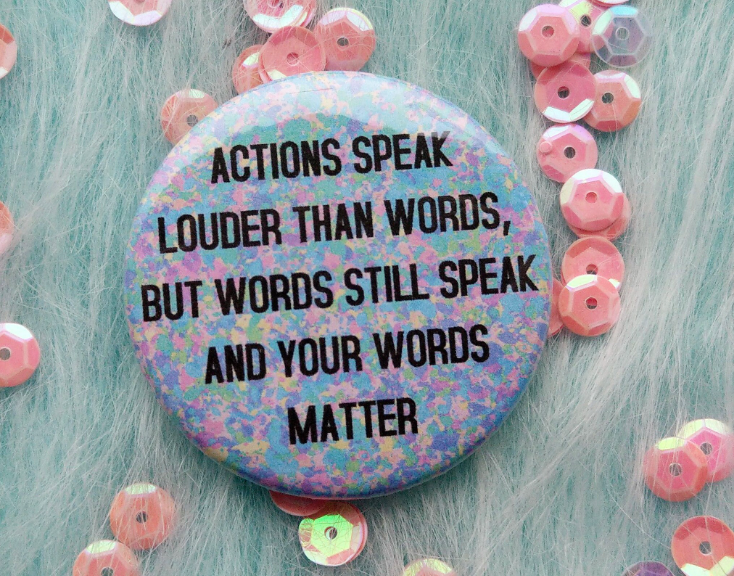I've devoted a lot of years of my life to teaching students that their words matter. As an English teacher, I help students expand their vocabularies and learn to produce and organize words carefully. I spent more time than I would have liked during my first year as a dean both educating and punishing people for their inappropriate (racist, sexist, ableist, and other mean) words. I titled this post not because I think words don't matter but to get at one instance in which it's fair to ignore what people say.
I don't have much patience these days for people who tell me what they're going to do. Think about the different between the first and second in each of these pairs:
- I'm going to complete the essay soon.
- The late essay is now ready for you to grade.
OR
- I plan to help, but I'm swamped right now.
- I don't have much time, can you assign me a small task?
OR
- I'll try to show up for your party.
- I'll be there at 6:00 with a vegetarian main dish and some caramel.
In each case, there's nothing I can do with the first sentence. The top lines don't given me any useful information to allow me to move forward. The second sentences, on the other hand, move beyond plans to actions. (Also, in the third case, I've found my new best friend.)
I understand that many people use outer accountability to get things done. If you look into Gretchen Rubin's four tendencies, you'll see that Obligers are the most common category, at 41% of people. If that's your case, maybe your best bet is to find yourself an accountability partner to serve as your sounding board and record-keeper. You can tell that person--one who has agreed to take on the job, perhaps in exchange for your doing the same in reverse--about all you hope to accomplish.
Then, once you've met your goals, sing about them from the rooftops. Better yet, give your self a silent pat on the back and figure out where to set your sights next. Get back to work, using your accountability buddy for both praising you for your work and pushing you on to the next target.
Unless we ask, you don't need to tell the rest of us what plans you have. Empty words don't help others. When you're going forward with your life, consider what your assurances mean and how they make others' lives easier. If they don't, you can keep them to yourself.
Is this post too grumpy? Feel free to share your thoughts in the comments.

Thanks for keeping me moving forward, buddy! I’ll see you with a side dish and some caramel soon!
Yay, I accept! (And thanks for keeping me moving forward, too!)
I know only one person who never answers emails until he can give a helpful answer. For example, if I ask him if he can do something next week, he won’t email back, “I’ll check my schedule,” but instead he’ll wait another day or two until he can say, “I am available Tuesday but not Wednesday.” Before I figured this out, I used to nag him for responses, because sometimes he takes longer than other people to respond. But once I saw the pattern, I really appreciate it!
I totally agree. If all, “I want to acknowledge that I got your email and will give you a real answer within the next day” emails were actually followed up, that’d be okay, but most aren’t. Yes, I’d rather have just the helpful information. Kudos to your friend and to you for noticing his MO.